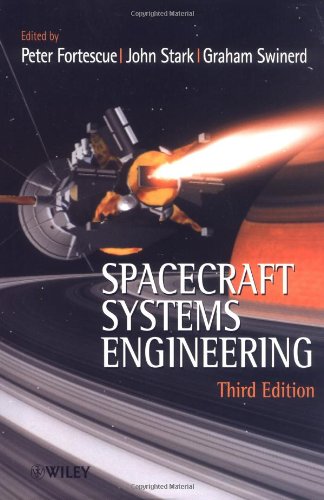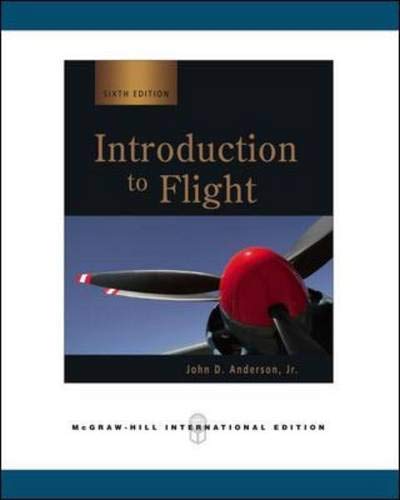Top products from r/AerospaceEngineering
We found 27 product mentions on r/AerospaceEngineering. We ranked the 41 resulting products by number of redditors who mentioned them. Here are the top 20.
1. Spacecraft Systems Engineering 3rd Edition
Sentiment score: 2
Number of reviews: 2
 Show Reddit reviews
Show Reddit reviews2. Space Mission Analysis and Design, 3rd edition (Space Technology Library, Vol. 8)
Sentiment score: 1
Number of reviews: 2
 Show Reddit reviews
Show Reddit reviews3. Aeroelasticity (Dover Books on Aeronautical Engineering)
Sentiment score: 0
Number of reviews: 2
 Show Reddit reviews
Show Reddit reviews4. Fundamentals of Astrodynamics (Dover Books on Aeronautical Engineering)
Sentiment score: 1
Number of reviews: 2
Dover Publications
 Show Reddit reviews
Show Reddit reviews5. Shigley's Mechanical Engineering Design (McGraw-Hill Series in Mechanical Engineering)
Sentiment score: 0
Number of reviews: 1
McGraw-Hill Science Engineering Math
 Show Reddit reviews
Show Reddit reviews7. ASUS VivoBook F510UA Thin and Lightweight 15.6” FHD WideView NanoEdge Laptop, Intel Core i5-7200U 2.5GHz, 8GB DDR4 RAM, 1TB HDD, USB Type-C, Fingerprint Reader, Windows 10 – F510UA-AH50
Sentiment score: 1
Number of reviews: 1
Powerful Intel Core i5 7200U 2.5GHz (Turbo up to 3.1GHz) processor14.2 Inches wide, 0.8 Inches thin and portable footprint with 0.3 Inches NanoEdge bezel for a stunning 80% screen to body ratio15.6 inches anti glare Full HD 1920x1080 WideView display with ASUS Splendid software enhancement8GB DDR4 R...
 Show Reddit reviews
Show Reddit reviews8. Analysis of Aircraft Structures: An Introduction (Cambridge Aerospace Series)
Sentiment score: 1
Number of reviews: 1
Used Book in Good Condition
 Show Reddit reviews
Show Reddit reviews9. A History of Aerodynamics: And Its Impact on Flying Machines (Cambridge Aerospace Series)
Sentiment score: 1
Number of reviews: 1
Used Book in Good Condition
 Show Reddit reviews
Show Reddit reviews10. Computational Gasdynamics
Sentiment score: 1
Number of reviews: 1
Used Book in Good Condition
 Show Reddit reviews
Show Reddit reviews11. Introduction to Structural Dynamics and Aeroelasticity (Cambridge Aerospace Series, Vol. 15)
Sentiment score: 0
Number of reviews: 1
 Show Reddit reviews
Show Reddit reviews13. Helicopter Theory (Dover Books on Aeronautical Engineering)
Sentiment score: 0
Number of reviews: 1
 Show Reddit reviews
Show Reddit reviews14. LSC Space Propulsion Analysis and Design with Website
Sentiment score: 0
Number of reviews: 1
 Show Reddit reviews
Show Reddit reviews15. An Introduction to Theoretical and Computational Aerodynamics (Dover Books on Aeronautical Engineering)
Sentiment score: 1
Number of reviews: 1
 Show Reddit reviews
Show Reddit reviews






They probably get cited too often as the best fluid mechanics books (at least for aerospace purposes), but John Anderson's books are a really good set to learn from as they have a really nice, linear progression of info. If you get several of them, you'll probably notice a fair bit of overlap in the early chapters since they're written to be pretty self-contained.
Jack Moran's book is also a really good intro and lead-up to computational approaches, with Laney providing a good second step down that line.
>I can't speak for this "Spacecraft Systems Engineering." The recommendations say it's a good supplement to the book I mentioned above-so that's a good sign. Would consider getting it afterward the one above.
I have both the SMAD and this book and I can recommend both. They are both really good books imo and have lots of information for the preliminary design of spacecraft and are definitely very good to learn the basics. I think the main difference between the two books is that the SMAD is originally from the United States and Spacecraft Systems Engineering is originally from the UK, its pretty interesting to see how some problems are approached slightly differently across the globe. The general story is about the same though. However note that if you really want to go into detailed design I think more specialised books/papers are needed.
People never believe me, but I constantly tell them we're really good at building planes... as there is a lot of data to infer from, which is why we have several extremely, notable books. Rocket and space craft design are a grey area. The one that is always recommended first to everyone is "Space Mission Analysis and Design". Most colleges use it and it's #1.
I can't speak for this "Spacecraft Systems Engineering." The recommendations say it's a good supplement to the book I mentioned above-so that's a good sign. Would consider getting it afterward the one above.
Has your friend read the book Skunk Works? I'd recommend it. If your friend likes building models, you can also run down to your local hobby shop and buy a plane or spacecraft kit to build one. Some may come pre-assembled if your friend isn't into building them.
I’d actually recommend “history of aerodynamic” also by John D. Anderson if you are reading for inspiration. It’s a fun read as he methodically step you step by step how aerodynamics as a science came to be. This is the same author that everyone is recommending, fundamentals of aerodynamics. I think history is better since it’s more of a story and have some maths in there to give you a taste without the undergrad level of calculus and differential equations that looks daunting and would be completely unfamiliar to you without the mathematical foundation you need.
Added link for ref: https://www.amazon.com/History-Aerodynamics-Machines-Cambridge-Aerospace/dp/0521669553
For flight dynamics, I've got Modern Flight Dynamics by Scmidt on my bookshelf. The book by Stengel looks pretty good too. I've got one of his other books called Optimal Control and Estimation that I like.
For structures of flight vehicles, I don't have any references I like on the subject unfortunately. The books I used for it in school were alright, but not great in my opinion. Lots of books on Amazon will let you have a preview, so you could skim a few there and then secure a copy from your library.
Skunk Works by Ben Rich - This book is probably one of the best reads in aerospace engineering. It tells the story of one of America’s premier aerospace research and development labs, Skunkworks at Lockheed Martin. They built such famous aircraft like the SR-71, U-2, F-80, F-114. I review the book here.
​
If you are looking for more of a textbook, Introduction to Flight by Anderson is one of the best. It's a bit on the expensive side but there's an international paperback edition that's much cheaper if you're outside of the US.
​
If you want something a bit between Skunkworks and Introduction to Flight, there's Ignition by John D. Clark which is all about the development of liquid rocket propellent.
https://en.wikipedia.org/wiki/Porkchop_plot
​
Find one of these for the earth-moon system, if you haven't already.
​
Did your prof say how much they weigh delta-v vs time of flight? Knowing how they are going to grade is probably better for making a cost function than assuming how much consumables/fuel you need.
​
There is this, I have no idea how helpful it will be: https://www.nasa.gov/offices/ocfo/nasa-cost-estimating-handbook-ceh
​
A copy of SMAD may be available at your local uni library: https://www.amazon.com/Mission-Analysis-Design-Technology-Library/dp/1881883108
​
Barring that, you could assume a rate for consumption of well, consumables (food, air, etc) and use that to find a mass budget for that. You can then assuming a launch cost per lb. Do something similar for your propulsion system, but assuming an engine with a certain ISP/propellant.
There is a fairly standard set of data called "two-line elements", which describes the main orbital elements of the satellite. Wikipedia
Orbital elements describe the orbit of the satellite. "Fundamentals of Astrodynamics" by Bate, Mueller, and White is the best book for understanding this stuff. Amazon
A lot of satellites broadcast this information in plain Morse code, which you can listen to if you really want. There are lots of resources out there that aggregate this information for you already. CelesTrak, OSSI, SatObs
I'm an aerospace engineering grad student studying solids/structures. My experience has been that at least our background courses like linear elasticity, beam theory, fatigue, fracture are all fundamental enough that they don't exclude any non-aero students. The more advanced courses like fracture mechanics are actually cross-listed with the civil department so we're all mixed in the same class. Research-wise for us, it's just the application happens to be aerospace so that dictates material choices, loading scenarios, etc. There are more specialized topics like aeroelasticity that you could look into books/courses for. I don't know what things would be like in industry but I think a structural engineering concentration within civil engineering will likely provide you with the fundamental knowledge of mechanics that you'd need for aerospace, too.
Book recommendation: Donaldson - Analysis of Aircraft Structures: An Introduction
This Laptop is the best one I was able to find. I use it with a Linux distribution and swapped the Hard drive for an SSD. Runs everything I need for physics and computer science.
General Aviation Aircraft Design by Gudmundson
Amazon
Also, check out Nicolai and Raymer. You might also find Jane's all world Aircraft catalog useful.
https://www.amazon.com/Aeroelasticity-Dover-Books-Aeronautical-Engineering/dp/0486691896
Considered one of the principle books in the field. Extremely well written too.
Everything you always wanted to know about Helicopters but were afraid to ask
Wayne Johnson is the Yoda of modern helicopter design.
SMAD.
https://www.amazon.com/Mission-Analysis-Design-Technology-Library/dp/1881883108/ref=sr_1_3?ie=UTF8&qid=1535934282&sr=8-3&keywords=smad
How does Roark's compare to Shigley's?
Maybe not in the redesign but the old sidebar got the bibles:
Another great ressource is Nakka Rocketry webiste (http://www.nakka-rocketry.net/) for actual data.
Whatever you do please do not blindly follow popular youtube videos. At best they document decade old techniques that everyone has abandoned because they are unreliable, at worst plain dangerous.